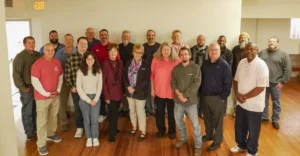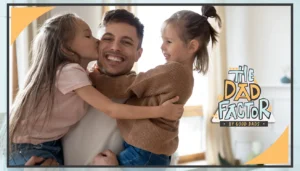This is the second of a two-part series of anonymous musings on the topic of raising adult children. Last week, we collected confessions from twentysomethings who shared what they crave from their relationships with their fathers.
This week, we’re exploring the flipside of the coin in our efforts to better understand what parents need from their relationships with their adult sons and daughters.
Communication… Over the Phone, Please!
All my children live in different states than my wife and me. What I want is someone to communicate with. I’m from a generation of phone callers, and my kids are a generation of texters. I would rather have a live voice through a phone call. My advice would be to stay in contact with your children if they’re local. I think it’s important for parents to listen to whatever their kids have to say. My wife and I have learned the hard way that advice is better offered immediately after requested. Otherwise, maybe not. I think even though our children are adults, I think it’s important for parents to validate their children.
Seek Advice from Dads — and Invite Us Along
I want and expect my children to be the best people they can be. I want to help them do that and assist in the ways I can. It’s really nice when adult children ask their parents’ advice on their life’s journey, with work or anything else. They know their parents have experience dealing with things that come up during the shift into adulthood. I find it complimentary when they reach out to seek your advice; it’s uplifting and shows respect.
When your children start having children, it means a lot to interact with them and be a part of their family. I get a lot of joy from family gatherings and staying connected with my grandchildren, and not just relying on the grandparents for babysitting! The willingness to still include us in their lives even though, as parents, maybe they have less energy or strength for activity means a lot.
Be Affectionate
It means everything when your child has a smile on their face. And we like hugs, too!
Understand My Sacrifices
I want my son to understand how privileged he is. We didn’t have any advantages growing up that he had. I am conservative; I go to work every day. I was born to two parents, but I wasn’t privileged. My mother died when I was young. I grew up in a broken household. We didn’t have money or the privilege my son has. Don’t act like I’m a criminal because we’re successful—because he lived in a warm house and his parents are married. Those are blessings. We’re not responsible for the world not having that.
We all survived, and our kids will survive it too. They need to make their own mistakes in life. Your kids don’t just listen to you, they see how you live your life. If you live your life in a consistent manner, they’ll see that. Be respectful, go to work, pay your bills, be honest, treat people with respect and a work ethic all go a long way without ever saying a word. Actions can speak louder than words sometimes.
Strive to Do your Best
I just want your continued love. I don’t really want or need anything from my kids. I would like them to check in with me. I want them to strive to always do their best. Sometimes you have to let them make their own mistakes. I know that doesn’t sound good, but it’s true. You can’t fix feelings, either. Check in with your kids periodically, but don’t overdo it.
Recognize Your Parents’ Strengths—and Forgive Mistakes
We want our children to recognize all the good that came from their parents—how we help our children become who they are in the positive aspects of their life. For instance, maybe your dad was a strict disciplinarian, and you might resent that he was too harsh. But it’s also important to recognize that your upbringing has made you a disciplined person, someone who’s good at their job, someone who people can count on. Parents want an acknowledgement that we did our best. Once you’re out on your own and begin to experience stresses that life throws at you, like raising a family or paying bills, adult children can see and more easily appreciate that their parents were going through the same thing. Some young adults grieve the fact that they’ve started to “sound just like my dad,” but that’s because they’ve come subject to some of the same stresses and demands.
Parenting is really a best-effort endeavor. It’s wonderful when a child can call up a parent later in life and say, “Thank you. I understand better now that you did your best, all things considered. Sure, you made mistakes, but we all make mistakes. I know you love me. I forgive you for the things that hurt me. I realize I was not walking in your shoes, and I can’t know what you were going through.” It means the world to hear that from a child. It was until I was in my 40s myself that it dawned on me that my own dad, despite my frustrations with him, loved me the best way he could despite the pressures he faced.
Connection and Opportunities to be Involved
I always appreciate my children’s contact and connection with me. I’d like them to be cognizant of the fact that their mode might be different from mine. For example, I love to talk on the phone as opposed to texting. That’s because I text real slow, and my keyboard seems to always goof it up! If there’s any opportunity for conversation, I love it.
We also appreciate it when our adult children keep us informed of our grandkids’ activities, like, “There’s a Christmas concert on this date; we wanted to let you know.” From one of my children, I always get the grandkids’ sports schedules ahead of time. We don’t need much from our kids, but mainly communication, connection and a willingness to take the time to include us in their lives are what I appreciate the most.






